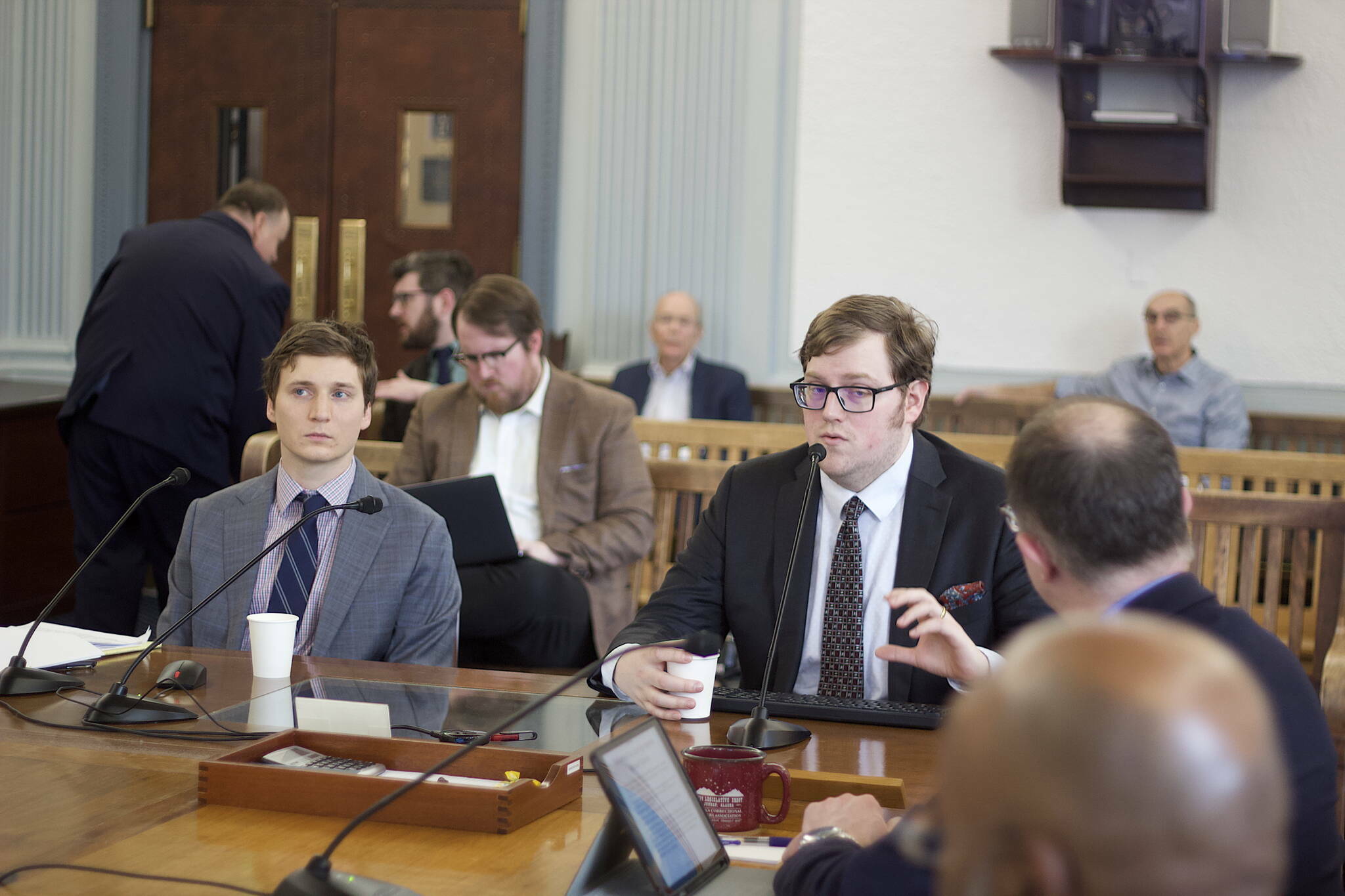A $175 “energy relief” payment is expected to be added to Alaskans’ Permanent Fund dividends this year as a result of a budget agreement reached last session that cut last year’s PFDs sharply from the previous year, but contained a provision for a payment up to $500 per eligible resident depending on oil prices, according to an analysis published Friday by the state’s Legislative Finance Division.
The analysis of Gov. Mike Dunleavy’s proposed budget for the 2025 fiscal year, which begins July 1, also projects lawmakers will adjust the budget to include a per-student education funding boost at least equal to the current year. Dunleavy’s budget includes no extra funding, after vetoing half of a $680 one-time increase the Alaska Legislature passed last session.
However, the report notes certain aspects of the state’s financial situation — including oil prices and resulting income — remain volatile and the projections don’t “necessarily discuss the merits of budget plans, but focuses on outlining the fiscal situation and presenting the budget in a way that provides objective information to the legislature.”
“The Governor’s FY25 budget proposal appears to be a work in progress that will develop through the amendment process,” the executive summary of the report notes. “The budget as presented contains no reductions and only a few significant increases, yet significant gaps exist where future increases are likely.”
The report notes the Departments of Corrections, Education and Early Development, and Public Safety have the largest increases in Dunleavy’s budget. Meanwhile, the Department of Health — which has been besieged with problems such as a massive backlog of food stamp applications — is the only agency with a decrease in the budget adjusted for inflation.
A battle over the amount of last year’s PFD — with Dunleavy seeking a “statutory” PDF well above $3,000, the Republican-led House about $2,700 and the bipartisan Senate majority about $1,300 — saw the Senate prevail, with the provision for an extra “energy dividend” if the average oil price was higher than the official forecast of $73 a barrel. The amount of the dividend, if any, will be on a sliding scale, with up to half of the maximum amount going toward the payments and the remainder being deposited in the Constitutional Budget Reserve.
Education funding was one of the other main battles of last year’s session, since the per-student formula known as the Base Student Allocation of $5,960 has remained nearly unchanged since 2017 (a $30 increase was approved beginning this fiscal year to help offset costs of the Alaska Reads Act). The Alaska Council of School Administrators has stated the BSA for next year should be $7,373 if adjusted for inflation.
The $680 one-time increase, like the “energy dividend,” was a compromise reached between the House and Senate during the budget process. Some legislators have stated they will seek an override vote of Dunleavy’s veto of half of the funds during the first five days of this year’s session, which would take a three-fourths vote of each chamber during a joint session.
A similar battle about the funding formula is projected this session, according to the Legislative Finance Division report.
“The Governor did not put forward a proposal to increase the education formula or additional outside the formula funding, but some amount is likely to be approved, at least matching the amount from FY24,” the report states.
In addition, “there is also a pending issue with the federal disparity test that could cause State costs to increase by $89.1 million.” Federal law allows a maximum of a 25% variance in per-student revenues at districts throughout the state (with some exceptions), which sparked a dispute last year when the state challenged Juneau and other municipalities providing funding beyond the “cap” for instructional purposes, although local officials said the funding was for non-instructional uses and the challenge was rescinded.
Increases to the governor’s proposed budget are also expected in other areas such as Medicaid and Senior Benefits, according to the report.
“The Governor’s budget does not contain an increase to Medicaid funding, but the Department of Health stated that the projection will be trued up in a future amendment,” the report states. “Preliminary projections indicate the need for an additional $22.6 million.”
Similarly, the Senior Benefits program is scheduled to expire on June 30, but several bills extending the program have been introduced and the legislative finance report expects $20.8 million will ultimately be provided for the coming year.
The report also notes the governor’s budget flat funds the Alaska Marine Highway System, which means there will be a $38 million shortfall if federal funding remains the same next year as the administration expects this year, according to the report.
Dunleavy’s budget also includes $23 million in matching funds to secure $92 million in federal funds to replace the Tustumena ferry, “using Federal toll credits” — essentially income from passenger fees — rather than state funds. Discussions were ongoing last month about whether the federal government would allow such funds to be used for matching purposes, the first time the state has ever tried such a mechanism.
The legislative finance report states the Federal Transit Authority and Federal Highway Administration have agreed to the use of such a match. Alexei Painter, director of the legislative finance division, said that assertion is based on statements from the Alaska Department of Transportation and Public Facilities, not directly from the federal agencies.
A spokesperson for the governor’s office was unable to immediately provide confirmation of the federal consent on Monday and efforts to contact DOT officials during the Martin Luther King Jr. Day holiday were unsuccessful.
• Contact Mark Sabbatini at mark.sabbatini@juneauempire.com or (907) 957-2306.

